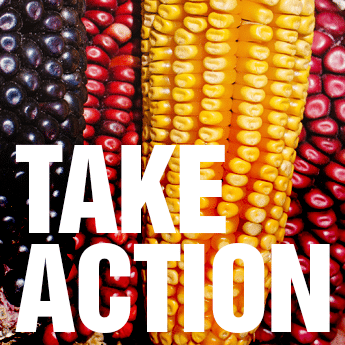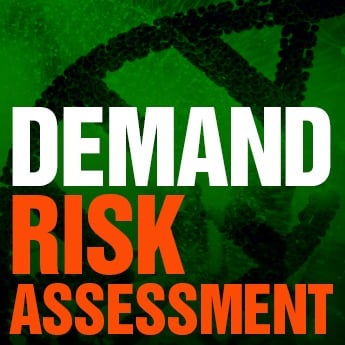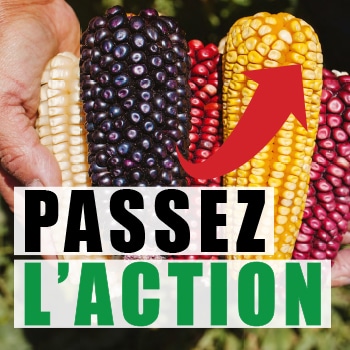AquaBounty stops producing GM salmon in Canada
February 7, 2023. Press Release: AquaBounty to stop producing GM salmon in Canada, as world’s first GM food animal struggles to find a market
After raising only two “cohorts” of GM salmon at the world’s first purpose-built GM fish factory in Rollo Bay, Prince Edward Island, Canada, the company AquaBounty says it will stop producing GM salmon at that location.
The genetically engineered (genetically modified or GM) salmon from the US company AquaBounty is the world’s first GM food animal. It is sold on the market in Canada and the US, and will now only be produced in the US.
The GM fish company AquaBounty will stop producing GM salmon at its facility in Canada, on land at Rollo Bay in Prince Edward Island, the world’s first GM fish factory.
- The company will continue to produce GM salmon, but this production will shift to the US, to its only other facility, in Indiana.
- The Rollo Bay PEI site will now be used to produce non-GM salmon eggs for sale to aquaculture companies.
- AquaBounty will continue to produce GM salmon eggs in PEI, for grow-out at its remaining GM salmon factory in Indiana, US
- The company will continue to sell GM salmon in Canada, without GM labels for consumers, and the US.
AquaBounty finished construction of the world’s first purpose-built GM fish factory at Rollo Bay in 2019. The first GM salmon was “harvested” there in 2021. The Rollo Bay site has the capacity to produce 250 metric tons per year of GM Atlantic salmon. The site includes a renovated existing structure and two new structures (3,700 m2 or 40,000 ft2 each), on a total area of 16.53 hectares (40.84 acres). The construction cost was estimated at $13-million (CND).
AquaBounty has a second “tank farm” in Albany in Indiana, US, (122,000 feet2) capable of raising 1,200 metric tons of GM salmon each year. The company started its harvest of genetically engineered salmon there in mid 2021.
AquaBounty is in the first stages of constructing a larger plant in Ohio, with capacity to produce 10,000 metric tons of fish each year (479,000 feet2), and says that it expects a first GM salmon harvest there in 2025.
Canadian Government Funding
The company has received grants and loans from both the federal and provincial (PEI) government. AquaBounty’s quarterly report ending Sept. 30, 2022 shows: three loans from the federal government’s Atlantic Canada Opportunities Agency, one from the federal Department of Fisheries and Ocean’s Atlantic Fisheries Fund, and one from PEI Finance.
Government Financing for Rollo Bay
- In 2020, AquaBounty entered into a Contribution Agreement with the Department of Fisheries and Ocean’s Atlantic Fisheries Fund, whereby it is eligible to receive up to C$1.9-million ($1.4-million) to finance new equipment for its Rollo Bay farm (the “DFO Term Loan”). On April 6, 2022, it borrowed an additional C$53,456 ($42,338) under the DFO Term Loan. Borrowings are interest free and monthly repayments commence in March 2023, with maturity in August 2032. (Source: AB 10-Q, Sept 2022)
- In 2018, the Government of Prince Edward Island (P.E.I) provided a $2-million loan to help it finish construction of the Rollo Bay facility.
Federal Government to get royalty payments
- In 2009, the federal government Atlantic Canada Opportunities Agency (ACOA) $2.87-million to “improve the culture of reproductively sterile Atlantic salmon.” This agreement provides for a 10% royalty from product sales to the federal government. In 2018, CBAN requested information on the royalty agreement from the Minister of Innovation, Science and Economic Development but the request was denied.
- This was the second such loan from a federal government agency. By November 1999, AquaBounty had negotiated an interest-free loan for just under $3-million from Technology Partnerships Canada. Repayment was to take the form of a small royalty on revenues. The financing was never repaid, because in 2014, the year the term of the agreement expired, AquaBounty had not generated any revenues from its fish. See: https://www.vice.com/en/article/wj78dn/how-canadians-bankrolled-the-worlds-first-genetically-engineered-food-animal
Consumer rejection in Canada
Last year, the Ontario/Quebec grocery chain Metro pledged to keep GM salmon out of stores until at least 2026. See the Corporate Responsibility Plan, 2022-2026.
In 2020, CBAN and Vigilance OGM surveyed the top five grocery chains in Canada. Metro and Costco both stated they will not sell GM salmon, and Loblaw provided a statement that they do not knowingly sell it and have no plans to source it in the future. See CBAN/Vigilance OGM’s report: GMOs in Your Grocery Store: Ranking company transparency
A 2015 poll commissioned by CBAN found:
- Almost half (45%) of Canadians said they would definitely not eat the genetically modified salmon and 11% said they would – 32% say maybe and 12% say they don’t know or did not have an opinion.
- Six in ten (59%) of Canadians oppose genetically modifying crops and animals to produce food, and one in three (34%) say they support it.
All consumer polls over the past twenty years consistently show that a vast majority of Canadians want mandatory labelling.
For more information and updates: www.cban.ca/fish






